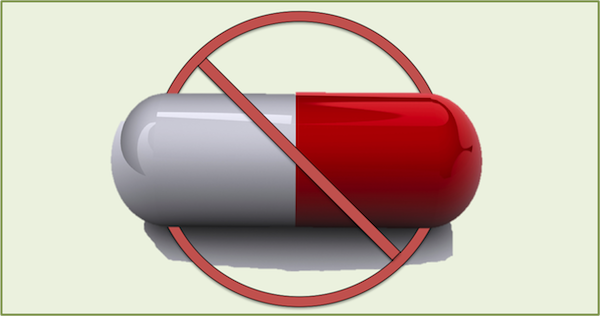Fever reducers may sound nice when you’re burning up – but popping that pill actually means you’ll be running hot even longer. And you may even be increasing your cancer risk.

Fever Reducers may seem like they help – but they actually keep you sick longer – and promote chronic infections.
If it comes in a pill, injection, or syrup, it’s probably bad for you. If it’s prescribed by a doctor, or comes over the counter at a drug store, it’s probably bad for you.
Sure, not everything at a drug store is bad for you (some drug stores sell pretty healthy toothpaste). And sometimes you just need to take the plunge and take those drugs.
For example – antibiotics do a number on your mirobiome, but they also save lives. Better to be living with indigestion than dead.
Sometimes a situation is so dire that prescription drug benefits outweigh the drawbacks, but everything you put in your body is worth a second thought. Especially when that “medicine” is designed to inhibit your body’s natural processes.
Fever Reducers
The clearest example of this is anything designed to reduce a fever.
When you get an infection, your body responds by getting hot in an effort to kill off the invaders. (This is the same principle as purifying water by boiling it.)
Fevers are uncomfortable, sure, but reducing one with medication prevents your body’s most robust defense against infection. Studies show that fever-reducing medication increases the amount of time spent beating just about every illness, from the common cold to the flu.
Even “cold-blooded” animals like lizards will make an attempt to increase their body temperature in an effort to kill infection, and one study showed that preventing that results in death.
Even more seriously, fever has been shown effective at reducing cancerous tumor growth, and there’s reason to believe that fever-reducing medication actually increases your chance of getting cancer.
Many cancers are now known to be caused by chronic infections (with HPV causing cervical cancer as perhaps the most publicized). Infections become chronic when the body’s initial response to destroy the infection is not strong enough.
The point of fever reducers like tylenol is to inhibit the body’s initial response, therefore increasing the possibility of chronic infection (and maybe later, cancer). Taking that pill can cause chronic infection, which can cause cancer. Makes toughing it out sound like a good plan. Especially because it will be over faster if you don’t reach for that bottle.
Of course, in serious (and rare) cases, fever can run out of control and permanently damage the body, potentially causing death. In these extreme cases, reducing the fever is probably wise. However, these types of fevers (even up to 107F is declared safe by some government organizations) are so extreme and rare that they usually result in hospitalization.
Summing Up
- A fever is a natural, healthy response to invading pathogens
- Taking a fever reducer impairs your body’s ability to win the fight
- Reducing a fever can cause chronic infection
- Chronic infections can lead to cancer
Next time you have a fever, think twice before reaching for a fever reducer.
[fitness-form]




